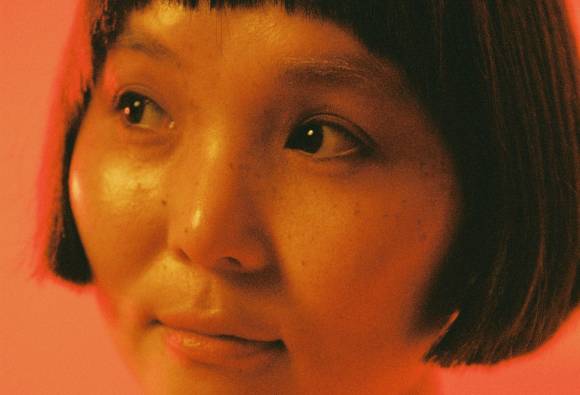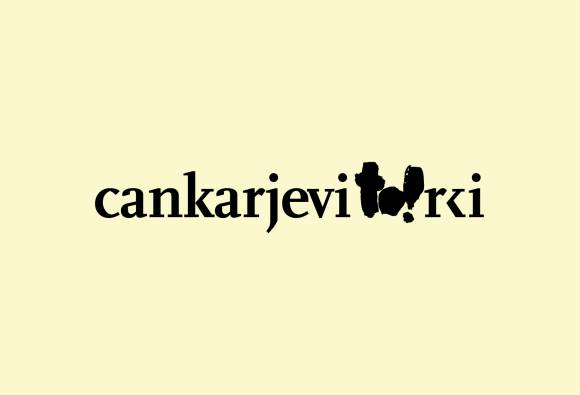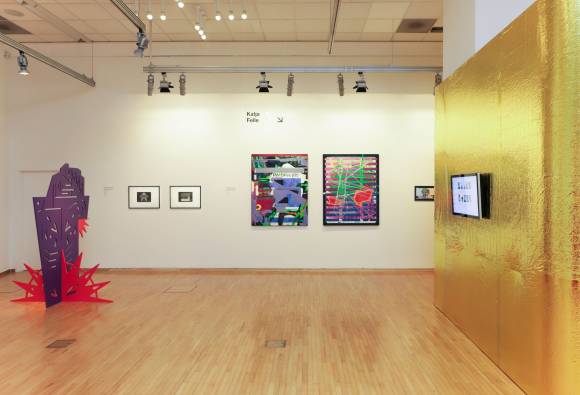
Enkhjargal Erkhembayar, glas; Philipp Schiepek, kitara; River Loring Adomeit, bas
Enkhjargal Erkhembayar – Enji, for short – equates music with freedom, originality, singularity, belonging, her music reflects colours and natural phenomena, through her music Enji vocalises unspoken emotions that touch even listeners unfamiliar with her language. Her songs are soulful and confessional, rooted in Mongolian folk tradition.
Enji was born in Ulaanbaatar and grew up in a yurt, a traditional tent used by nomads, in a close-knit working-class family. Music and singing was an intrinsic part of her family’s daily routine, and Enji's parents encouraged her in her musical creativity. Initially, she pursued the career of a music educator, teaching music at a primary school, but a jazz workshop brought to Mongolia by the Goethe-Institut turned her life upside down. She was accepted to the Munich Conservatory; as a student there, she realised that singing was her life's passion. With support from the Goethe-Institut, Enji recorded her debut release, Mongolian Song – an album of traditional Mongolian song with jazz arrangements, accompanied by accomplished performers like the legendary drummer Billy Hart, pianist Paul Kirby, saxophonist Johannes Enders and bassist Martin Zenker. The encounter with Martin Brugger, owner of Squama Recordings, was catalytic for Enji’s creative talent. Enji's second album, Ursgal, was released during the pandemic, when, used to living in a close-knit community, she suddenly had to face the situation of being alone and truly seeing herself for who she was when on her own. The answer yielded by her self-reflection was a ritual form of expression, the traditional Mongolian singing style of Urtiin duu, which translates as "long song".
“My father’s side, they used to sing in that style in the countryside, and this long song kind of belongs to me,” Enji explains in an interview. In the Mongolian folk tradition, vocalists extend single words and syllables in vibrato-laden lines that can stretch to minutes. “In our long song, you don’t have bars or strict tempo. Soundwaves extend across space. It is more a picturing of the melody. You have your own energy and your own tempo, and you can sing in a completely free way. The techniques and sounds are related to nature. You can, for example, hear sounds like water, animals, or mountains reflected in the music,” says Enji about her singing style.
Enji’s third release ventures beyond the structures of the Western musical canon she studied at the Conservatory. Alongside her long-time music collaborators, guitarist Paul Brendel and bassist Munguntovch Tsolmonbayar, she recruited two Brazilian musicians, drummer Maria Portugal and clarinettist Joana Queiroz to join her at the studio. She titled her most personal album to date Ulaan, which means ‘red’ in Mongolian. Ulaan is the nickname that has stuck with her since childhood. When a baby, Enji was crying so much she turned red as a beetroot, and her family just called her Ulaan.
It’s an elegant and powerful twist on traditional Mongolian music, writes The Guardian, while Washington Post thus reviews her concert: “These songs sound so inventive, so free, yet so grounded – and if they end up calming your mind, the aim wasn't to numb it, but to open it.”
Enji
15,00 EUR
10,00 EUR * * EUR for younger than 25 and older than 65, as well as pensioners.



 Cankarjevi torki (Tuesday Clubbing)
" width="580" height="395">
Cankarjevi torki (Tuesday Clubbing)
" width="580" height="395">

